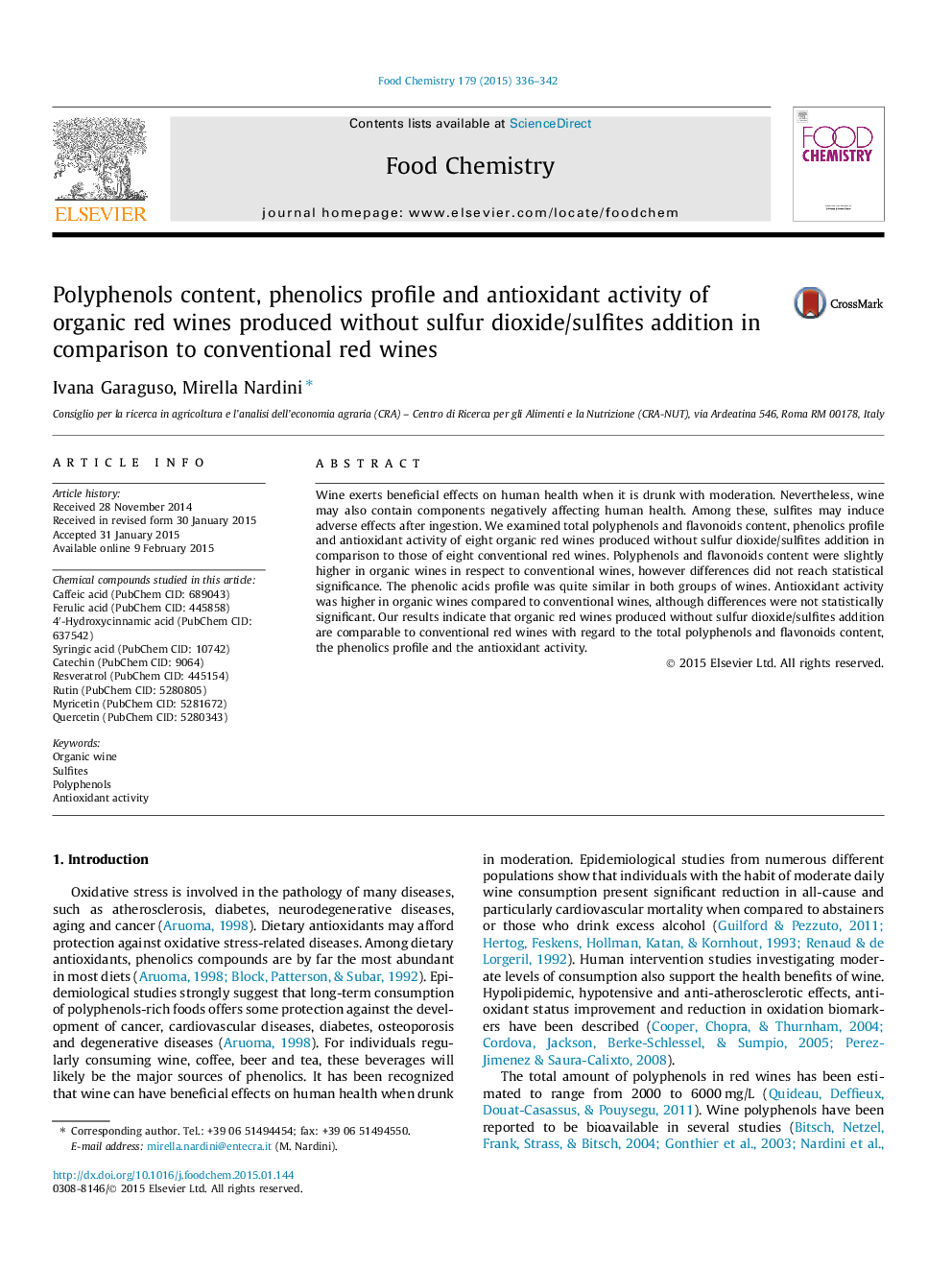| Article ID | Journal | Published Year | Pages | File Type |
|---|---|---|---|---|
| 7592675 | Food Chemistry | 2015 | 7 Pages |
Abstract
Wine exerts beneficial effects on human health when it is drunk with moderation. Nevertheless, wine may also contain components negatively affecting human health. Among these, sulfites may induce adverse effects after ingestion. We examined total polyphenols and flavonoids content, phenolics profile and antioxidant activity of eight organic red wines produced without sulfur dioxide/sulfites addition in comparison to those of eight conventional red wines. Polyphenols and flavonoids content were slightly higher in organic wines in respect to conventional wines, however differences did not reach statistical significance. The phenolic acids profile was quite similar in both groups of wines. Antioxidant activity was higher in organic wines compared to conventional wines, although differences were not statistically significant. Our results indicate that organic red wines produced without sulfur dioxide/sulfites addition are comparable to conventional red wines with regard to the total polyphenols and flavonoids content, the phenolics profile and the antioxidant activity.
Keywords
Quercetin (PubChem CID: 5280343)Syringic acid (PubChem CID: 10742)Ferulic acid (PubChem CID: 445858)Caffeic acid (PubChem CID: 689043)Resveratrol (PubChem CID: 445154)Rutin (PubChem CID: 5280805)SulfitesOrganic wineAntioxidant activityMyricetin (PubChem CID: 5281672)PolyphenolsCatechin (PubChem CID: 9064)
Related Topics
Physical Sciences and Engineering
Chemistry
Analytical Chemistry
Authors
Ivana Garaguso, Mirella Nardini,
